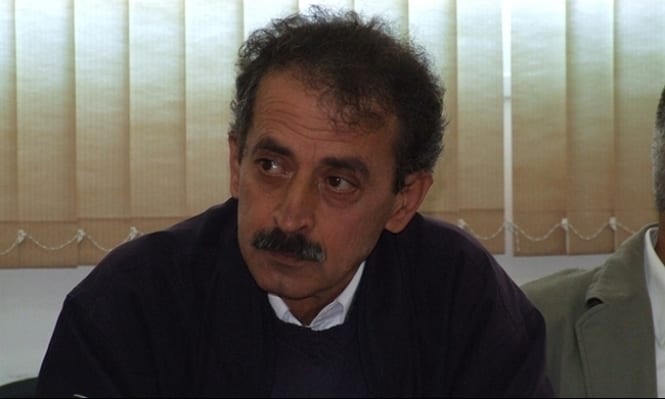No fire was lit under Trump’s feet despite the fact that death has and still threatens the life of hundreds of Palestinian prisoners who have been fighting the Karama battle with their empty stomachs for over a month. Instead, he was warmly welcomed, covered in the scents, oil and dollars of the Hejaz, and backed by its Arabian “swords” that danced around him and for him.
How wouldn’t this be when he is backed by the largest Arab-Muslim alliance, including Palestine, headed by Mahmoud Abbas, against terrorism, Iran, Hezbollah and Hamas? He is the protector of the Arab Gulf from the Persian Gulf, the protector of Sunni Islam from Shia Islam, and the protector of the two holy mosques. He travelled on the wing of a jumbo jet from the land of the Hejaz to the blessed land of Palestine to fall directly into Netanyahu’s embrace.
It seems that some are trying in vain to stand in the way of the trend that threw the compass off course. It is a painful irony that all this love and money is bestowed on the head of the settler administration in the White House, whose public extremist positions in support of the settlements caused awkwardness even to the leader of the Israeli right-wing and Prime Minister Benjamin Netanyahu himself.
We must acknowledge that many things have changed in the region, especially the map of alliances and the priorities of the conflict. The issue of Palestine, with all its issues, including Jerusalem, refugees and prisoners, is no longer a priority for the Arab leadership. Attempts to transform the conflict in the region from an Arab/Muslim-Israeli conflict into a Shia-Sunni conflict, giving Israel a foothold under the guise of the common Iranian threat have been successful with the arrival of Trump, who provided a cover Obama refused to provide in this conflict.
Furthermore, the internal Palestinian conflict has not only allowed the Arabs to escape their responsibilities towards the Palestinian cause, but has also allowed the Palestinian parties to follow their own agendas at the expense of the national goals.
It also contributed to the state of political chaos and fragmentation amongst the Palestinians. This was apparent in the case of the prisoners, who, were, until recently, “red heifers”, but now no longer control the entire national agenda. The strike did not “undo” the arrangement, preparations, and ceremonies surrounding Trump’s visit, and Abbas’ visit to Washington before this. This means that not only the Fatah-Hamas division, but also the internal Fatah division has reached a high level of conflict that is difficult to bridge in policies and orientations.
The state of division and fragmentations amongst the Palestinians is “reinforced” by the unprecedented collapse and breakdown of the Arab world, which puts Israel and its right-wing settler government in a position to allows itself to completely deny Palestinians their rights and to back down from the privileges that the Palestinians had in earlier times. This includes avoiding the two-state solution and taking back the benefits the prisoners took in their previous struggles, which they are currently trying to regain with their current strike to no avail.
We are witnessing a level of ignoring that has reached the ignoring of the prisoners’ strike, thus proving wrong all the expectations that predicted Israel would try to end the strike before the Nakba anniversary, fearing that the Palestinian street would ignite, or at least before the American president’s visit to the country, as we had witnessed in the past.
It seems that the Israeli agencies that usually test the waters were more aware of the Palestinian body’s diseases than we were and knew that the body plagued with splits, divisions and disappointments would not be able to bring about an effective movement that would lead to a change of status quo or disrupt Trump’s visit. The occupation authorities proved that it was not taking a risk when it made this decision, as the divided and fragmented Palestinian public did not rise up on the Nakba anniversary nor did it revolt during Trump’s visit.
Meanwhile Abu Mazen hesitantly raised the issue of the prisoners in his timid speech when he received Trump in Bethlehem. Today, as they are being transferred to hospitals and are between life and death, the prisoners, who have sacrificed their most precious possession for the sake of the country and the people, are still hopeful that their people will not let them down and that they will write the final chapter in the Karama battle ending in victory.
First published in Arabic by Arab48.com, 25 May 2017
The views expressed in this article belong to the author and do not necessarily reflect the editorial policy of Middle East Monitor.


![Palestinian president Mahmoud Abbas (R) and US President Donald Trump (L) hold a joint press conference following their meeting on 23 May, 2017 in Bethlehem, West Bank [Issam Rimawi/Anadolu Agency]](https://i0.wp.com/www.middleeastmonitor.com/wp-content/uploads/2017/05/2017_05_23-Palestinian-president-Mahmoud-Abbas-and-US-President-Donald-Trump-hold-a-joint-press-conference-following-their-meeting-in-Bethlehem-West-Bank20170523_2_23831991_22417608-.jpg?fit=1144%2C800&ssl=1)









